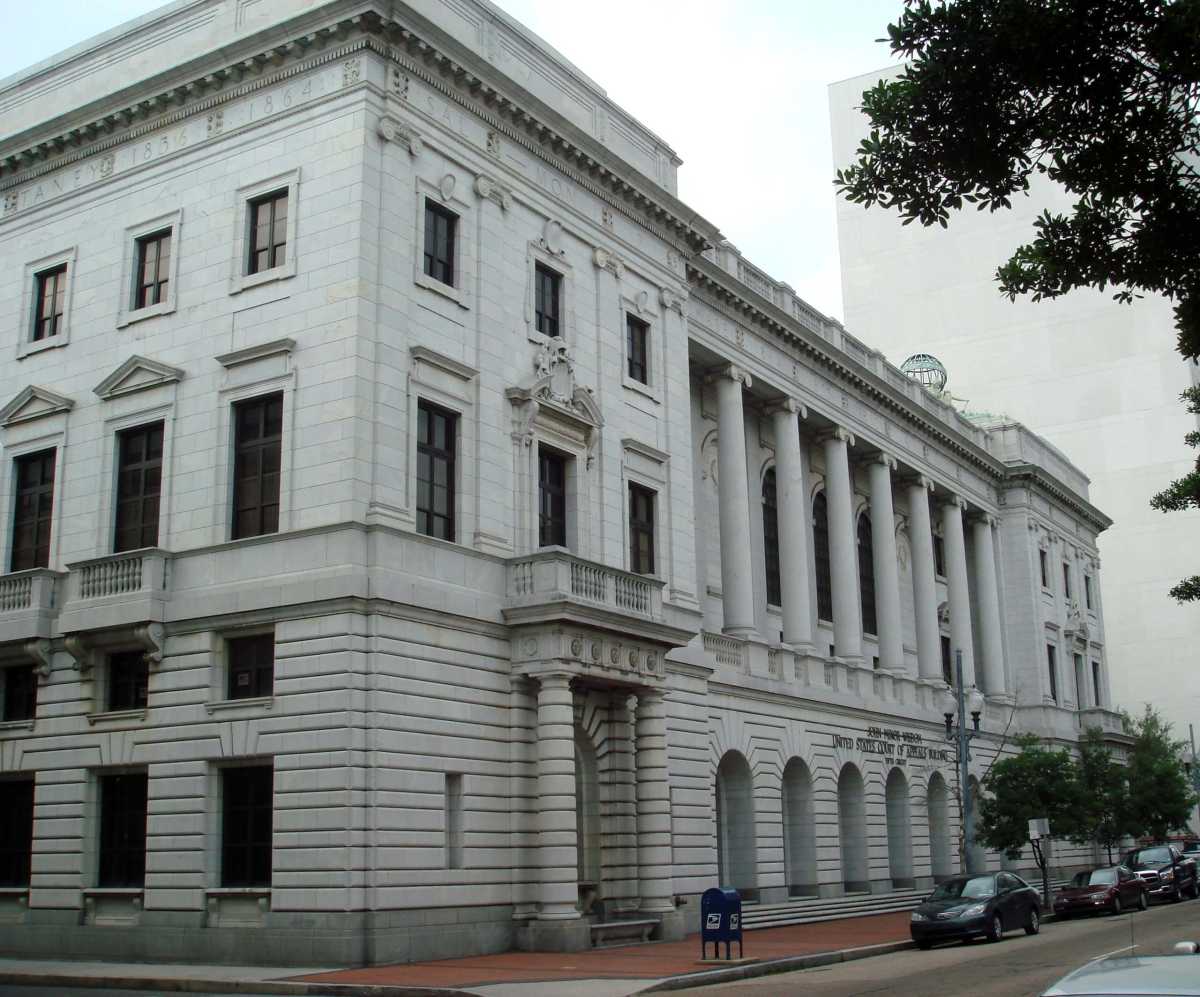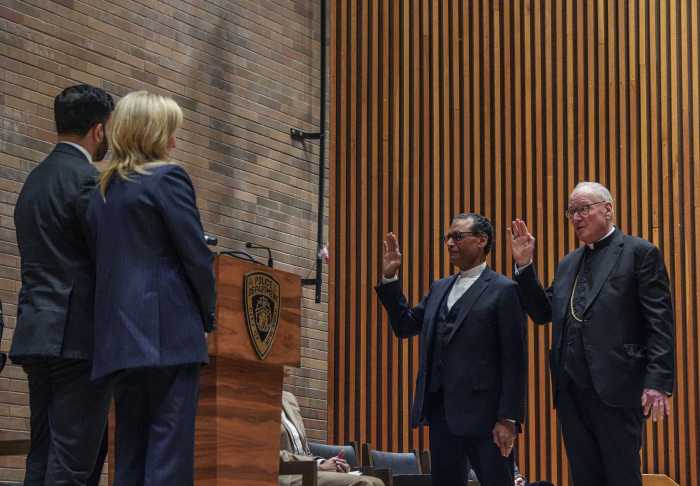A three-judge panel of the US Court of Appeals for the Fifth Circuit issued an order on Jan. 17 upholding in large part an order issued last year by US District Judge Alan Albright (who was appointed by President Donald J. Trump) barring the state’s Commissioner of Education, Mike Morath, from enforcing a recently-enacted law intended to exclude many materials with sexually-related content from public schools in the state. Judge Albright found that the plaintiffs were likely to prevail on their claim that the law violated their free speech rights under the US Constitution.
The Texas statute is unusual but generally follows the lead of other states that have recently begun the process of purging materials from public schools that address sexual issues, especially as they relate to LGBTQ people.
Circuit Judge Don Willett (who was appointed by President Donald J. Trump after having served on the Texas Supreme Court by appointment of conservative Republican Governor Rick Perry), wrote the unanimous opinion for the three-judge Fifth Circuit panel. Thus, both opinions were written by conservative Republican judges appointed by President Trump. The other judges on the Fifth Circuit panel were Senior Circuit Judge Jacques L. Wiener, Jr., who was appointed by President George HW Bush, and Circuit Judge Dana Douglas, who was appointed by President Joseph R. Biden, Jr.
The Texas law has two parts. The first deals with “collection standards” for school libraries, amending existing laws to prohibit school districts from possessing, purchasing, or acquiring “harmful material,” “library material labelled sexually explicit by the vendor,” or “library material that is pervasively vulgar or educationally unsuitable.” This part is not the subject of the current lawsuit, which was brought by two Texas bookstores, three national trade associations representing booksellers, book publishers, and authors, and a legal defense organization (The Comic Book Legal Defense Fund), to challenge the second part, which is directed at the plaintiffs — book sellers — as well as the public school districts that purchase books from them.
The second part of the challenged law establishes a vendor rating system. In order to be allowed to sell books to public school districts in Texas, vendors have to review the contents of every item they have previously sold or now have for sale to a school district, giving the material a rating of “sexually explicit, “sexually relevant,” or “no rating” because it doesn’t fall in the first two categories.
The first category of “sexually explicit” applies to materials that “describe, depict, or portray sexual conduct in a way that is patently offensive.” The second category of “sexually relevant” means “any communication, language, or material, including a written description, illustration, photographic image, video image, or audio file (other than library material directly related to curriculum), that describes, depicts, or portrays sexual conduct.” Sexual conduct is broadly defined, in the state’s Penal Code, as “sexual contact, actual or simulated sexual intercourse, deviate sexual intercourse, sexual bestiality, masturbation, sado-masochistic abuse, or lewd exhibition of the genitals, the anus, or any portion of the female breast below the top of the areola.” The definition in Texas penal law of “patently offense” is “so offensive on its face as to affront current community standards of decency.” “Deviate sexual intercourse” is the term generally used in modern sex crime laws to describe anal or oral sex. In 2003, the US Supreme Court ruled that laws penalizing “deviate sexual intercourse” could not be enforced against adults who engaged in private, consensual sexual activity. Materials that don’t fall into either of these categories would be placed on a separate “no rating” list.
After vendors “rate” the material they have sold in the past or have available for sale now, they must submit their lists to the Texas Education Agency, now headed by Commissioner Morath. Anything rated as sexually explicit may not be sold to public school libraries and must be removed from the library shelves if the library already possesses it. The vendors are required by the law to “recall” from the schools all material that is rated as sexually explicit and still in active use by a school district. Material that is rated as “sexually relevant” may not be “reserved, checked out, or otherwise used outside the school library” by a student without the written consent of their parent or adult guardian.
The first round of lists must be submitted to the Texas Education Agency by April 1, 2024. Vendors are not permitted to sell any materials to public schools in Texas until those lists are submitted. The agency is supposed to post the lists “in a conspicuous place” on its website. Vendors are supposed to conduct this review of their inventory on an annual basis, submitting updated ratings each year by September 1.
The statute provides detailed “guidelines” containing “three factors” that vendors must consider in assigning ratings, focused on the “explicitness or graphic nature” of the material, whether the material “consists predominantly of or contains multiple repetitions of depictions of sexual or excretory organs or activities,” and “whether a reasonable person would find that the material intentionally panders to, titillates, or shocks the reader.” The guidelines require vendors to “weigh and balance” each factor and conclude whether the material is “patently offensive” and they are required to make an individual determination as to each item and consider the “full context” in which the material appears, “to the extent possible, recognizing that contextual determinations are necessarily highly fact-specific and require the consideration of contextual characteristics that may exacerbate or mitigate the offensiveness of the material.”
One of the booksellers that is a plaintiff in this lawsuit contends that carrying out this rating process will require it to spend so much money that it will have to close up shop. Each item it has ever sold to a school district and any other materials in its inventory that might in the future be sold to a school district has to be individually examined to determine a rating, presumably by an individual with the time and capability of applying the guidelines accurately, which will require the exercise of judgment in many “borderline” cases.
Obviously, material that is legally “obscene” or that everybody would consider “pornographic” will be put on these lists, but what about the many books, films or other material, both fiction and non-fiction, routinely found in school libraries, especially at the middle and high school levels? The plaintiffs pointed out that the two sexual rating categories could apply to numerous literary classics, prize-winning novels, and widely read works of biography or history, which might contains contents that would require a judgment call under these guidelines. Furthermore, the statute gives the Texas Education Agency authority to review the submitted lists and demand adjustments based on the judgment of agency personnel, which must be accepted by the vendors. A TEA rater might consider that a book given “no rating” should be on one of the sexual category lists, or might disagree about whether a particular depiction is “patently offensive.” The statute uses terms that courts use in charging juries that have to determine whether sale of particular material violates a state or federal obscenity law. Here, the same sort of decision is being given to an anonymous bureaucrat deciding whether students can have access to the material in their school, or whether the school is allowed to purchase the material or return previously purchased material to the vendor.
The plaintiffs argued that requiring them to compile and submit these lists violates their First Amendment freedom of speech by compelling them to communicate their determination whether material falls into one of the two sexually-related categories (and assuming all the expenses of making such a determination) if they want to sell books to Texas schools.
One of the plaintiffs is Blue Willow, a book vendor who has sold over $200,000 in books to just one school district, Katy Independent School District, in the past 5-7 years. As a result of law, which went into effect in September, Katy has stopped ordering books until such time as Blue Willow’s rating lists are published on the Texas Education Agency website, since the statute prohibits the schools from buying any books from a vendor who doesn’t have the lists posted there. Blue Willow estimates that it will cost them between $200 and $1,000 per book to pay people to go through the books, apply the guidelines, and determine the rating to submit to the state, and that these compliance costs will put them out of business because their total annual sales come to just over $1 million. Furthermore, Blue Willow says that 20% of their sales are to schools or are related to school author visits and book festivals run by schools. If schools can’t buy books from Blue Willow, it will lose a substantial part of its annual revenue. These sorts of allegations by the plaintiffs were necessary to establish that they have “standing” to challenge the constitutionality of the law, because it imposes an injury on them of constitutional dimensions.
The defendants moved to dismiss the case, claiming lack of standing by the plaintiffs because, claimed the defendants, the law was enforced against the school districts, not against the vendors. It was up to the vendors whether they wanted to sell materials to Texas public schools, and they could avoid having to rate any of their books by just abandoning that market. But the market is huge, with thousands of school districts with annual business worth billions of dollars. It was an easy call for Judge Albright, and then for the Fifth Circuit panel, to find that the plaintiffs have standing to challenge the law.
The plaintiffs named two other defendants in addition to Commissioner Morath: the chair of the Texas Board of Education, and the Chair of the Texas State Library and Archives Commission. Judge Albright issued his preliminary injunction against all three defendants, but the Fifth Circuit panel found that the injunctions against the latter two should be vacated because they play no role in enforcing the provision in dispute. The appellate court found that Morath is the only defendant against whom an injunction would provide a remedy for the plaintiffs.
The court found that Judge Albright did not abuse his discretion in concluding that the provision relating to vendors would likely be found to violate their First Amendment rights. The First Amendment guarantees freedom of speech, and the courts have long held that this includes freedom not to speak. This concept of “compelled speech” was at the heart of the Supreme Court’s decision last June that a website designer could not be required under Colorado’s civil rights law to design wedding websites for same-sex couples, because she claimed that her religious beliefs would be unconstitutionally burdened if she were required to design websites that would communicate approval of their marriages. It was also central to the Supreme Court’s decision many years ago that organizers of the annual St. Patrick’s Day Parade in Boston could not be required to include an Irish-American gay group in their parade, since the court found that this would be compelling the organizers to accept a gay rights message as part of the “expressive activity” of the parade, a form of government-compelled speech.
Judge Willett’s opinion rejected the defendants’ argument that there was no compelled speech here because the lists were to be published by the government on its website and were thus “government speech.” He pointed out that the law requires vendors to submit their rating lists to the state if they want to sell to public schools, and since the posting on the website will necessarily identify the vendors who submitted the rating lists, readers of the website will attribute the ratings to the vendors. The court also rejected the argument that because the agency was authorized to review the ratings and require changes, the ultimate ratings were the agency’s speech. The court pointed out that when published on the website, they would be communicated to the schools and the public as the vendors’ ratings.
Here, wrote Willett, “the law requires Plaintiffs to ‘either speak as the State demands’ or suffer the consequences, which are substantial” The court found that plaintiffs would suffer an irreparable injury, since deprivation of a constitutional right is always considered an injury that cannot be fully compensated with monetary damages. Furthermore, requiring them to undergo the expensive rating process would impose further injuries of “nonrecoverable compliance costs.”
The court agreed with the defendants that the state “necessarily suffers the irreparable harm of denying the public interest in the enforcement of the laws,” but countered that “neither the state nor the public has any interest in enforcing a regulation that violates federal law” and “injunctions protecting First Amendment freedoms are always in the public interest.”
The bottom line is that the law may not be enforced while this lawsuit goes forward to discovery and an eventual ruling on the merits of the plaintiffs’ First Amendment claims. Commissioner Morath could ask the Fifth Circuit for reconsideration “en banc” (by the full Fifth Circuit bench) and/or could seek a stay of the injunction by the US Supreme Court, pending review by that court. Texas Attorney General Ken Paxton’s office represents the defendants, and they have a record of seeking stays from the Supreme Court when the state is enjoined from enforcing a controversial law, so such an attempt seems likely.





































